‘The Sensational Sea-Minkettes’ Steps Lively (Review)
Woolly Mammoth's "The Sensational Sea-Minkettes" kicks off with a sensational first half but doesn't sustain its fine form.
By André Hereford on February 24, 2024 @here4andre

Vivian J.O. Barnes’ sharp-edged comedy The Sensational Sea-Minkettes plunges deep into the hearts and psyches of its titular all-female team of dancers at an unnamed historically Black college.
Woolly Mammoth’s world-premiere production, directed by Taylor Reynolds, starts stronger than it finishes, but, throughout, the vivacious cast rarely misses a beat hitting the hilarious highs and crushing emotional lows of Barnes’ enigmatic narrative.
Leading the ensemble, Billie Krishawn leaves a powerful impression as team captain Shanteé, a senior Sea-Minkette knee-deep in her first season wielding the clipboard as crew leader. Shanteé speaks quietly but leads loudly with poise and confidence, getting her ladies into formation for an upcoming half-time performance at Homecoming.
The team does most of its practicing in the stands of the school football stadium, rendered by scenic designer Paige Hathaway as a steep bank of aluminum bleachers topped by field lamps, looming over a patch of green turf.
Exquisitely designed to suggest your local HBCU stadium, and the set of Beyoncé’s legendary HBCU-themed Homecoming concert performance at Coachella, these metal stands are where the play’s fictional universe and real life converge. That’s especially true for Beyoncé-obsessed team member Kiki (Sabrina Lynne Sawyer).
Guided by the empowering voice of Queen Bey in her head, Kiki might be merely applying healthy tools of self-motivation, or she might actually hear voices that she chooses to believe are “Beyoncé.” Sawyer’s nuanced performance intrigues, as we question Kiki’s sanity, while she maintains the appearance of being the most calm, attentive Sea-Minkette.
Not at all calm, team members and besties Racquel (Kalen Robinson) and Gabby (Khalia Muhammad) bring brazen attitudes and disruptive energy to dance practice, along with a prospective routine set to their provocative original song, “Pussy Pop.” Robinson and Muhammad also provide much of the show’s laugh-out-loud comedy, not to mention some smooth dance moves.
In keeping with the play’s intent to poke at a variety of issues faced by all young women, and Black women, specifically, even lighthearted characters Racquel and Gabby add serious takes on sexual agency and slut-shaming to the pot of hot topics the playwright’s stirring.
Rounding out the crew, disciplined senior Maya (Kimberly Dodson), former team leader, seems overwhelmed trying to complete her thesis, and newbie Aleyse (Lauren Fraites) is buckling under the pressure of living up to the Sea-Minkette legacy built by her mom and grandmother.
All the ladies’ problems and concerns loom over Shanteé’s efforts to tighten up their dance routine. Breathe pretty, she tells them. “No one wants to see all that panting.” Sea-Minkettes are held to a standard of always epitomizing elegance, effortlessness, and elegance. No one must see the struggle.
That’s a powerful theme on the conditions of womanhood, one of many themes that Barnes introduces organically to a story that gradually unravels, as fun and friendship give way to vague mystery and creeping existential dread. No concern looms larger over the Sea-Minkettes than the unexplained absence of two team members, Nikki and Dionne, who never show up to practice. And the mystery only deepens in the days leading up to the Homecoming performance, with the sudden disappearance of other team members.
We see enough to wonder about the unfortunate possibilities — abuse, abortion, eating disorders, or suicide — but answers aren’t forthcoming, as if the girls are vanishing one by one into a void. All Shanteé can do is keep asking, and decry the total lack of response from authorities and school administrators, expressing the common frustration that missing persons of color stay missing.
Still, it’s clear something untoward is happening. And in case anyone didn’t already get the picture, Barnes has Shanteé announce that the existential dread she feels is creeping closer. But what happens as the pressure builds? The play seems to get lost in the mystery, swinging on loose threads into a vision of the afterlife, or an alternate dimension, where some Sea-Minkettes find themselves.
Reynolds stages these scenes in pitch-dark lighting, with the performers in a shallow pit at the foot of the stage, where, from my seat in the rear orchestra, they couldn’t be seen at all. Their disembodied voices thus carried the Sea-Minkettes’ story towards its uncertain conclusion, while I watched the back of a patron’s head bobbing to the beat.
The Sensational Sea-Minkettes (★★★☆☆) runs through March 3 at Woolly Mammoth Theatre, 641 D St. NW. Tickets are $34 to $94, with a limited number of pay-what-you-wish tickets available for each performance. Visit www.woollymammoth.net.
Sports Drama ‘American Fast’ Scores at Theater Alliance
Theater Alliance's taut drama "American Fast" captures the high-pressure life of a women's college basketball sensation.
By André Hereford on April 4, 2025 @here4andre
Religious freedom doesn't just mean having the choice to worship who and how you want, but also, crucially, having the choice not to practice any religion at all. Kareem Fahmy explores that choice with urgency in the sports drama American Fast, making its D.C. regional premiere in a charged Theater Alliance production directed by Reginald L. Douglas.
Khady Salama (Gigi Cammarato), the college basketball phenom at the center of American Fast, prefers to exercise her freedom to not care about religion and just play ball. Though she was raised Muslim by her Egyptian immigrant parents, she doesn't practice Islam and doesn't particularly identify with the faith. She identifies with winning on the court, where her team is on a roll to the NCAA tournament, a.k.a. March Madness.
‘Sister Act’ at Ford’s is a Heavenly Good Time
Beloved characters, a committed cast, and fabulous musical numbers add up to a great time at Ford's Theatre's "Sister Act"
By André Hereford on March 29, 2025 @here4andre
Blessed with a sweet yet sturdy redemption story, Sister Act, based on the hit 1992 film starring Whoopi Goldberg, is a natural fit as a screen-to-stage musical.
The tale of lounge singer Deloris Van Cartier hiding out from her murderous crime boss boyfriend in the last place he'd think to look for her -- a convent full of singing nuns -- eagerly lends itself to set-pieces full of singing and dancing.
Composer Alan Menken and lyricist Glenn Slater's score of catchy original tunes are paired with a solid book by Cheri Steinkellner and Bill Steinkellner, and additional material by Douglas Carter Beane.
‘cullud wattah’ is a Compelling Drama About Flint’s Toxic Water
Mosaic’s "cullud wattah" offers a vibrant staging of a tragic drama about the injustice of the Flint, Michigan water crisis.
By André Hereford on April 13, 2025 @here4andre
In addition to depicting a family of Black women confronting the toxic water crisis in Flint, Michigan, Erika Dickerson-Despenza’s melancholy drama cullud wattah maintains a grim nightly tally of the toll paid by all of those affected.
As of the night I saw the play in its D.C. premiere production at Mosaic Theater, it had been 3,954 days since the citizens of Flint had clean water, according to a solemn acknowledgment by the cast.
That’s more than ten years since then-Michigan Governor Rick Snyder led the ill-conceived switchover of the city’s water supply to untreated water from the Flint River.
Support Metro Weekly’s Journalism
These are challenging times for news organizations. And yet it’s crucial we stay active and provide vital resources and information to both our local readers and the world. So won’t you please take a moment and consider supporting Metro Weekly with a membership? For as little as $5 a month, you can help ensure Metro Weekly magazine and MetroWeekly.com remain free, viable resources as we provide the best, most diverse, culturally-resonant LGBTQ coverage in both the D.C. region and around the world. Memberships come with exclusive perks and discounts, your own personal digital delivery of each week’s magazine (and an archive), access to our Member's Lounge when it launches this fall, and exclusive members-only items like Metro Weekly Membership Mugs and Tote Bags! Check out all our membership levels here and please join us today!
The Magazine
-
Most Popular
 Charges Dropped in Nancy Mace Assault Case
Charges Dropped in Nancy Mace Assault Case  Gay Army Reserve Officer in Uniform Sex Video Scandal
Gay Army Reserve Officer in Uniform Sex Video Scandal  Jared Polis Signs Law Repealing Colorado's Gay Marriage Ban
Jared Polis Signs Law Repealing Colorado's Gay Marriage Ban  WorldPride Warns International Trans Visitors About Travel Risks
WorldPride Warns International Trans Visitors About Travel Risks  'Porn Star University' Started by Gay-for-Pay Creator Andy Lee
'Porn Star University' Started by Gay-for-Pay Creator Andy Lee  Transgender Blackhawk Pilot Sues Right-Wing Influencer
Transgender Blackhawk Pilot Sues Right-Wing Influencer  Air Force Reverses Ban on Pronouns in Email Signatures
Air Force Reverses Ban on Pronouns in Email Signatures  White House Demands NIH Study Transgender Transition "Regret"
White House Demands NIH Study Transgender Transition "Regret"  Hugh Bonneville Delivers a Show-Stopping Vanya
Hugh Bonneville Delivers a Show-Stopping Vanya  White House Ignores Reporters with Pronouns in Email Signatures
White House Ignores Reporters with Pronouns in Email Signatures
 Jared Polis Signs Law Repealing Colorado's Gay Marriage Ban
Jared Polis Signs Law Repealing Colorado's Gay Marriage Ban  White House Ignores Reporters with Pronouns in Email Signatures
White House Ignores Reporters with Pronouns in Email Signatures  White House Demands NIH Study Transgender Transition "Regret"
White House Demands NIH Study Transgender Transition "Regret"  Air Force Reverses Ban on Pronouns in Email Signatures
Air Force Reverses Ban on Pronouns in Email Signatures  Transgender Blackhawk Pilot Sues Right-Wing Influencer
Transgender Blackhawk Pilot Sues Right-Wing Influencer  'cullud wattah' is a Compelling Drama About Flint's Toxic Water
'cullud wattah' is a Compelling Drama About Flint's Toxic Water  Gay French Thriller 'Misericordia' is Creepy and Suspenseful
Gay French Thriller 'Misericordia' is Creepy and Suspenseful  Hugh Bonneville Delivers a Show-Stopping Vanya
Hugh Bonneville Delivers a Show-Stopping Vanya  This Week's Advertisers: Rep. Becca Balint - April 10, 2025
This Week's Advertisers: Rep. Becca Balint - April 10, 2025  WorldPride Warns International Trans Visitors About Travel Risks
WorldPride Warns International Trans Visitors About Travel Risks
Scene
Metro Weekly
Washington's LGBTQ Magazine
P.O. Box 11559
Washington, DC 20008 (202) 638-6830
About Us pageFollow Us:
· Facebook
· Twitter
· Flipboard
· YouTube
· Instagram
· RSS News | RSS SceneArchives
Copyright ©2024 Jansi LLC.



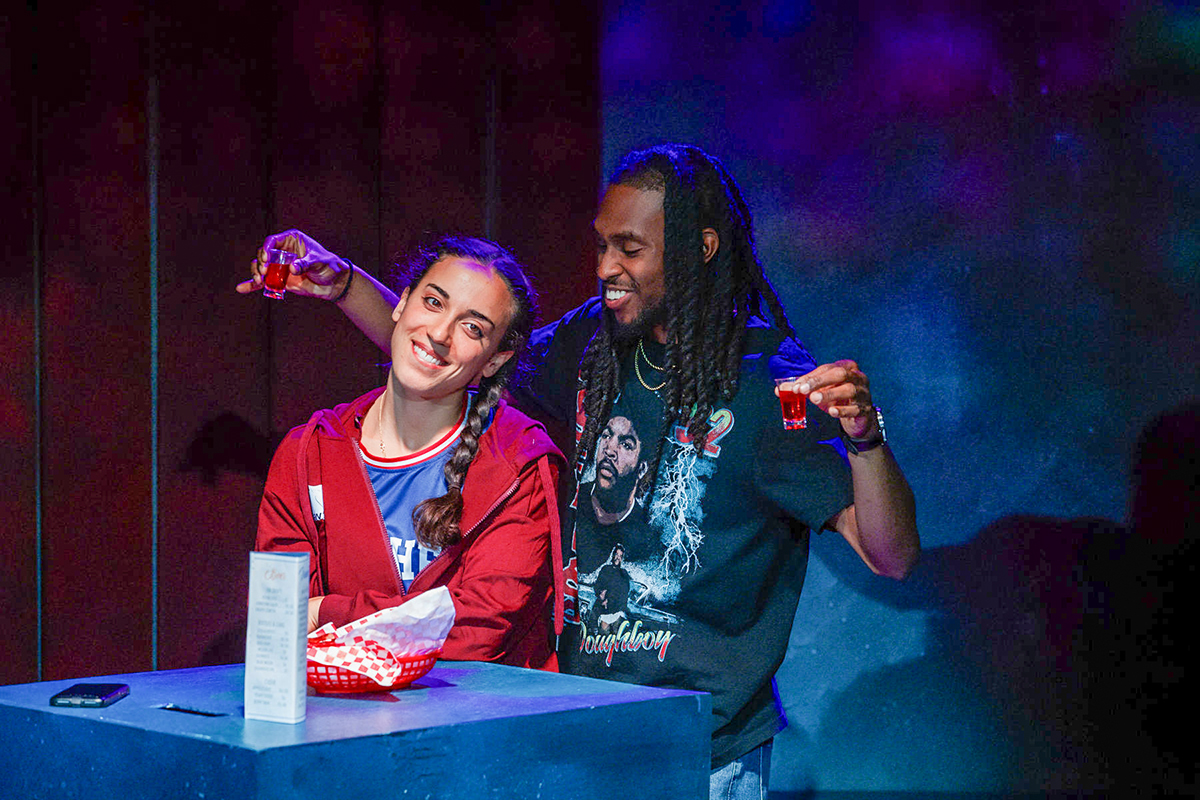
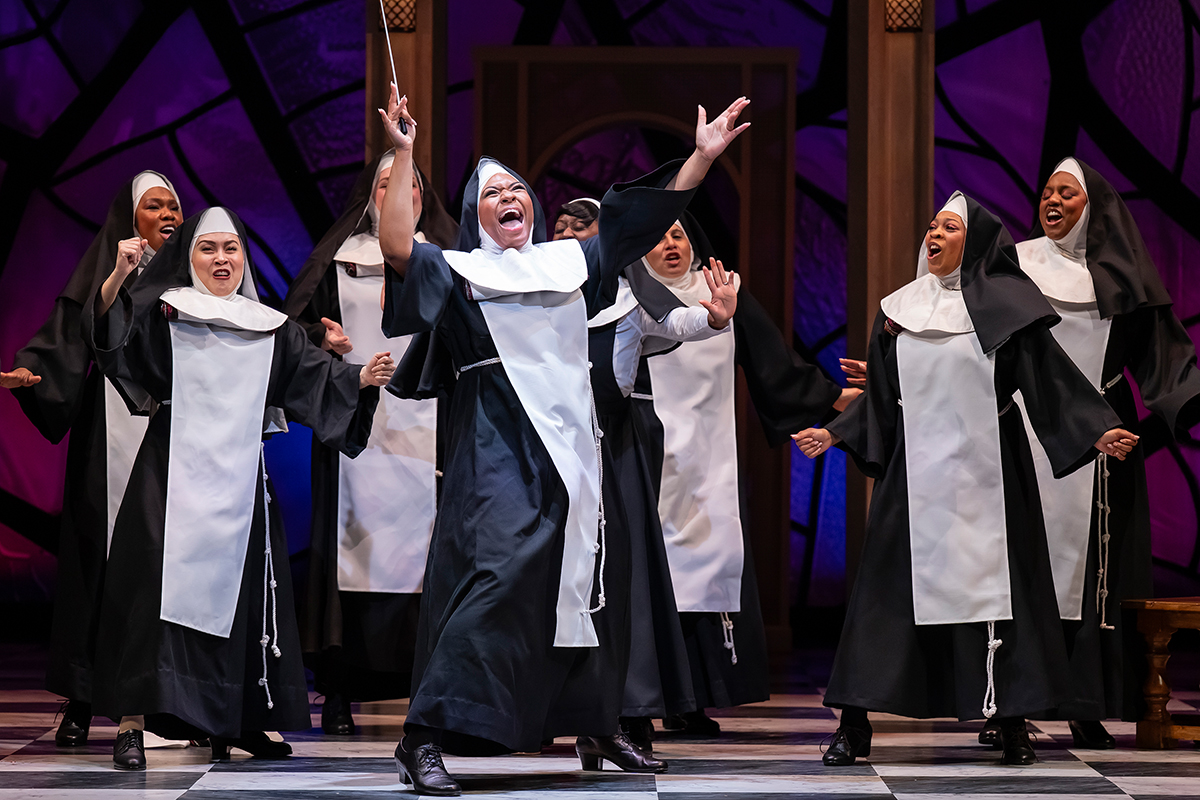
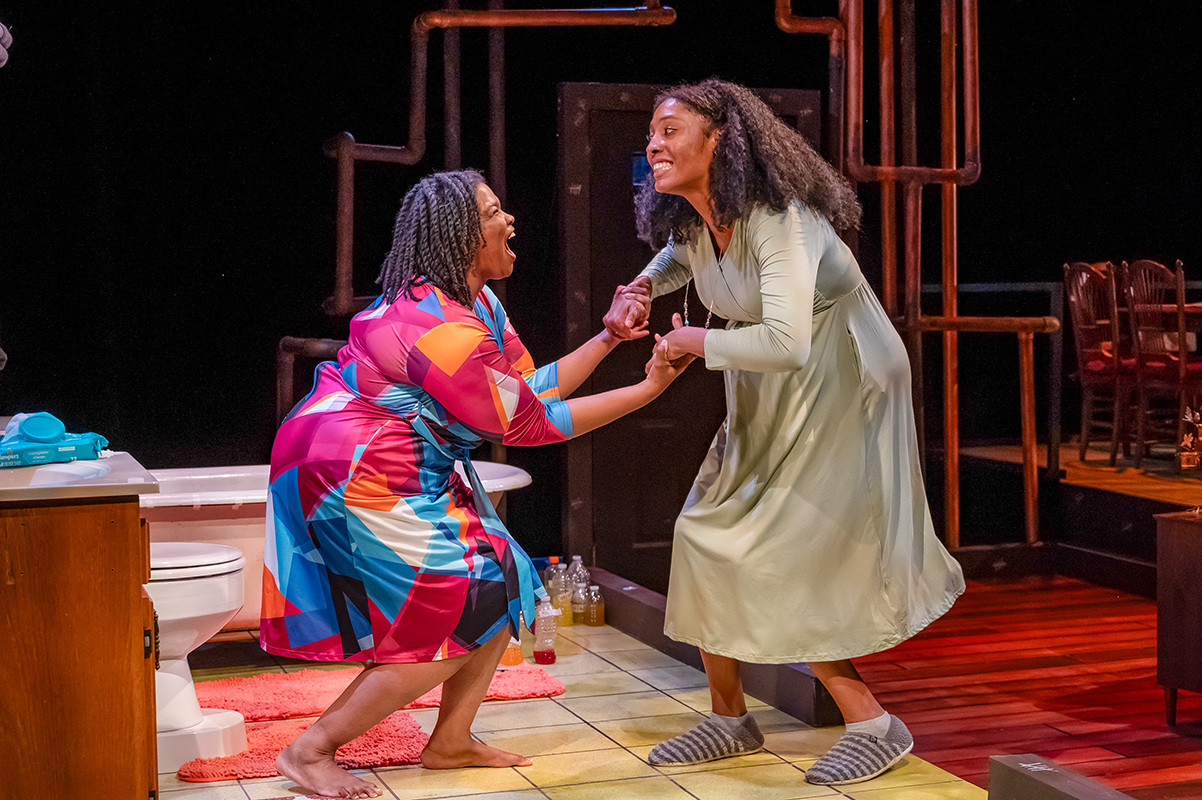
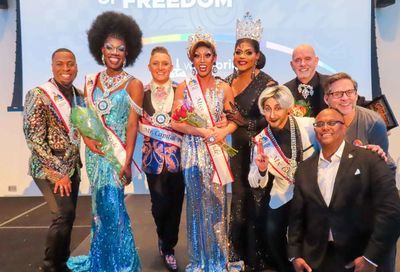

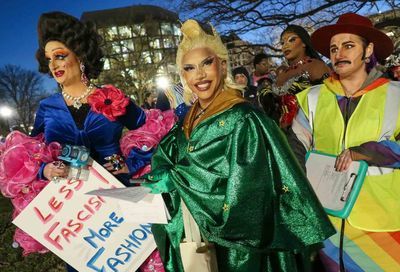
You must be logged in to post a comment.